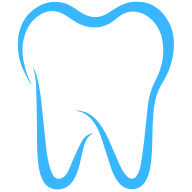Welcome to a comprehensive exploration of the profound influence nutrition exerts on oral health. This blog post delves into the intricate relationship between what we consume and the health of our teeth and gums. We'll explore how different nutrients affect oral health, the consequences of poor nutrition, and practical tips for maintaining a diet that promotes a healthy mouth.
The Connection Between Nutrition and Oral Health
The mouth is the gateway to our body, and what we consume directly affects our oral health. Nutrition plays a pivotal role in maintaining the integrity of our teeth and gums. It's not just about avoiding sugar-laden foods that contribute to tooth decay; it's also about ensuring we get the right nutrients to keep our oral tissues healthy.
Different nutrients have different roles in oral health. For instance, calcium, found in dairy products and leafy greens, helps strengthen our teeth and jawbone. Vitamin D, which we can get from sunlight and fatty fish, aids in the absorption of calcium. Without adequate Vitamin D, our body can't utilize the calcium we consume, leading to weaker teeth and a higher risk of tooth decay.
On the other hand, Vitamin C, found in citrus fruits and peppers, is crucial for the health of our gums. A deficiency in Vitamin C can lead to scurvy, a disease characterized by swollen, bleeding gums and loose teeth.
The Consequences of Poor Nutrition on Oral Health
Poor nutrition can have dire consequences on our oral health. Consuming too much sugar can lead to tooth decay, the most common chronic disease among children and adults. Sugar provides food for the harmful bacteria in our mouth, which produce acids that erode the tooth enamel, leading to cavities.
Moreover, a diet lacking in essential nutrients can weaken our immune system, making us more susceptible to oral infections. People with poor nutrition are also more likely to experience gum disease, a condition that can lead to tooth loss if left untreated.
In severe cases, poor nutrition can lead to oral cancer. Certain nutritional deficiencies, such as a lack of Vitamin A or B3, have been linked to an increased risk of oral cancer.
The Role of Hydration in Oral Health
Hydration plays a crucial role in maintaining oral health. Drinking water helps wash away food particles and dilute the acids produced by bacteria in our mouth. It also promotes saliva production, which is our body's natural defense against tooth decay. Saliva not only washes away food particles but also neutralizes acids and provides our teeth with essential minerals.
However, not all beverages are created equal. While water is the best choice for hydration, other beverages like soda and fruit juice can harm our oral health due to their high sugar content and acidity. Regular consumption of these drinks can lead to tooth decay and erosion.
The Impact of Dietary Habits on Oral Health
Our dietary habits can significantly impact our oral health. Snacking frequently, especially on sugary foods and drinks, can increase the risk of tooth decay. Each time we eat, the bacteria in our mouth produce acids that attack our teeth for up to 20 minutes. By snacking frequently, we expose our teeth to a constant acid attack, which can lead to tooth decay.
On the other hand, eating a balanced diet can promote oral health. A diet rich in fruits, vegetables, lean proteins, and whole grains provides the nutrients necessary for oral health. Moreover, eating a variety of foods can help ensure we get a wide range of nutrients.
Practical Tips for a Mouth-Healthy Diet
Maintaining a mouth-healthy diet is easier than you might think. Here are some practical tips:
- Limit your sugar intake: Try to reduce the amount of sugary foods and drinks in your diet. If you do consume them, do so during meals rather than between meals to minimize the time your teeth are exposed to acid.
- Eat a balanced diet: Ensure your diet includes a variety of foods from all food groups to get the necessary nutrients for oral health.
- Stay hydrated: Drink plenty of water throughout the day to help wash away food particles and dilute acids.
- Limit snacking: If you need a snack, choose something low in sugar and acid. Cheese, nuts, and raw vegetables are good options.
- Get regular dental check-ups: Regular dental check-ups can help detect oral health problems early when they're easier to treat.
The Role of Nutrition in Oral Health Recovery
Nutrition also plays a crucial role in oral health recovery. After a dental procedure or during the treatment of oral diseases, the body needs more nutrients to heal. A diet rich in protein, vitamins, and minerals can speed up the healing process and reduce the risk of complications.
For instance, after a tooth extraction, eating soft foods rich in protein like eggs and yogurt can promote healing. Similarly, during the treatment of gum disease, a diet rich in Vitamin C and other antioxidants can support the healing of the gums.
The Verdict on Nutrition's Role in Oral Health
Nutrition has a profound impact on oral health, influencing everything from tooth decay to gum disease. A balanced diet, rich in essential nutrients and low in sugar, can help maintain healthy teeth and gums. Hydration and dietary habits also play a significant role. Remember, oral health is not just about brushing and flossing; it's also about what we eat and drink. So, let's make every bite count for our oral health!

